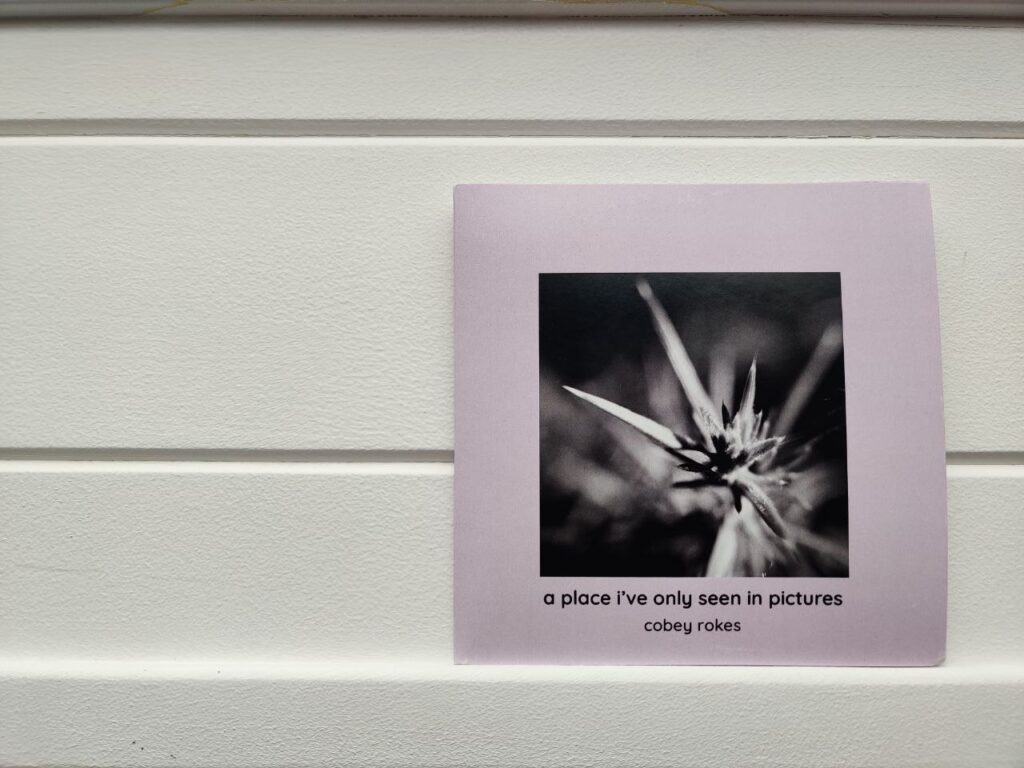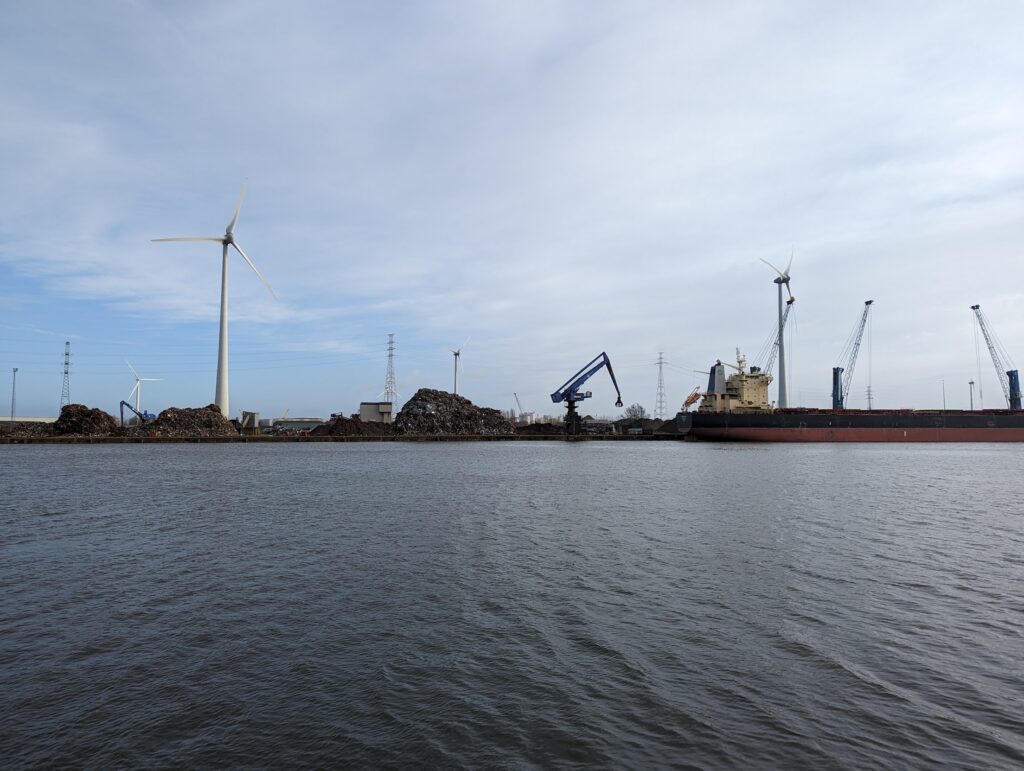Diving For Pearls by Jamie O’Connell
The plot of Diving for Pearls centres around the death of Hiyam, a young Emirati woman. The novel flows through the voices of several characters. Through them, we discover her fate. For the most part, Diving for Pearls concerns itself with the actions and choices of one Irish family. The heart of the novel rests within the shifts of consciousness in Trevor, the troubled younger brother of Siobhán. Siobhán summons Trevor to Dubai where she has been living with her husband and children since the 2008 economic collapse. Like the dead Emirati woman, Trevor too ended up in open water as a result of a misspent evening. Siobhán thinks she can save Trevor without realising that she’s more lost than him.
Dubai feels like something out of a Mark Fisher book. It manifests as an expression of pure capitalist realism. Within its city limits, the global caste system is on full display. Public space is so inhospitable that if you attempt to spend time outdoors, you risk being seared to death by the sun. Refuge of any sort can be found only within the private shopping malls and hotels.
While O’Connell writes complex Irish characters, the foreign characters lack a certain dimensionality. On this point, I give O’Connell the benefit of the doubt. Diving For Pearls seems less interested in rendering characters’ rich inner worlds than in demonstrating that for every northern indulgence some southern family pays the price. This book has strong parallels with Jordan Peele’s film Us, where the Wilson family confronts the horror of their doppleganger family. The Wilson’s material gains result in torment and hardship for their counterparts who exist in a parallel underworld. O’Connell’s characters of non-white descent suffer endlessly and needlessly so that the white characters’ good fortune continues.
Within this novel, those with money are godless while the impoverished are pious. The worship of both capital and god relies on higher powers. These higher powers remain abstracted and unaccountable but widely believed. In the end, everyone relies on little more than hope. As Siobhán’s good fortunes flip from one moment to the next, in what is a comical scene, she tries to remember how to pray. In Diving for Pearls, Christianity provides a quiet sense of community. The Christians of diverse nationalities gather together to worship but also to commune with one another. The consumers seek individuals with whom they can binge in tandem. Both have a price.
O’Connell’s writing becomes urgent and compelling when he writes about faith. This seems a feature of the latest generation of Irish artists. While their fluency in Christian doctrine probably came through involuntary indoctrination, its immutable presence shapes their art. O’Connell’s writing expresses a final exhalation of Irish Christianity.
The Siobhán of this novel embodies the archetypal sleepwalking consumer of capital. She names her children Rocco and Milo after the new global deities. When Trevor enquires about the palpable inequality evident in Dubai, she’s quick to rationalise this as a law of nature. Someone has to slave! A certain comedy arises when Siobhán passes comment about Gete, her Ethiopian housemaid whose prospects of making a living in her homeland were robbed by foreign interests and whose entire fate rests in Siobhán’s hands. Siobhán thinks Gete fails to understand what is important in life, aka designer goods. Gete, knowing better than to ever comment, seems pregnant with opinion.
When Siobhán drags her family out to witness an actor scale the Burj Khalifa, the supreme moment of bearing witness fails to offset the discomfort of the voyage. Worship stripped of its religiosity splits Siobhán open for a moment. She realises that her entire life has been built on a lie; she chose luxury over ever knowing true desire. Her life’s milestones are garnished with disappointment. Nothing in her life has lived up to the hype. After this brief confessional moment, she returns to normal. Despite experiencing a great change in fortune, she doesn’t have the wherewithal to become conscious of the source of her malaise. Siobhán, as an embodiment of the general Irish population, and some might argue the entire global north, demonstrates comedic acts of cognitive dissonance.
Dublin and Dubai fail to differ enough to draw a strong contrast. Moving thousands of miles from one to the other offers distance rather than difference. For Trevor, Dubai might lead to a life post-Lucy Quirke. For Aasim, Dublin allows him the liberty of sharing a bed with a man without fear but also without love. Outside of that, both men know nothing but excess. Trevor tries to steel himself through building a thick muscular exoskeleton. Aasim flashes money to court friendships.
The one question I have is whether O’Connell could have written Diving For Pearls without Trevor. While O’Connell animates Trevor’s awakening with great skill, Trevor reads like a metaphor for the Labour Party or the American Democratic party. Although his lifestyle leads to the death and destruction of the global south, he retains the capacity to display some awareness and remorse. He understands the ills of the world enough for the rest of us to buy into him as a form of hope. Ultimately, he might change course but the change isn’t radical. A Diving For Pearls without a Trevor to add empathy would have been more realistic but less palatable.
Siobhán’s husband Martin remains voiceless throughout the novel. Everything that happens, happens because of his sense of entitlement. His shady dealings both stand up and tear down the lives of Siobhán and the boys. Martin lies beyond reach. He is both guilty and conscious of his actions. He may not mean to murder but he still robbed Hiyam of her life. Capitalism doesn’t mean to tear the planet to ribbons. The destruction of life and the environment is an unfortunate byproduct. Following the same natural order that necessitates modern slavery, Martin will never see the inside of a jail cell. His steady cash flow tethers him positively to his offspring even after all he has done. Even after her confrontations with reality, Siobhán continues to accept his money. The entire planet will plunge into flames and every one of us will die before Martin’s air conditioned apartment will experience mild brownouts. Martin represents everything that happens in the shadows. Deep down, we all know that the deals that Martin makes keep the known world spinning on its axis. Deep down, we’re all varying shades of Siobhán. In a metaphorical sense, we all choose Martin. If ‘he’ were to stop, some of the global north’s luxury would cease to exist. Martin goes unprosecuted because to prosecute Martin would mean confronting our own culpability.
Nothing is real. Nothing is certain or eternal. As quick as all this has been created, like Sodom and Gommorah, it can come undone. As much as Emirati wealth can couch them in luxury, the bodies still pile up. Sometimes they find their own family members among the casualties. As the fire grows nearer, the smoke will engulf us all.
What a masterful first novel from Jamie O’Connell.


